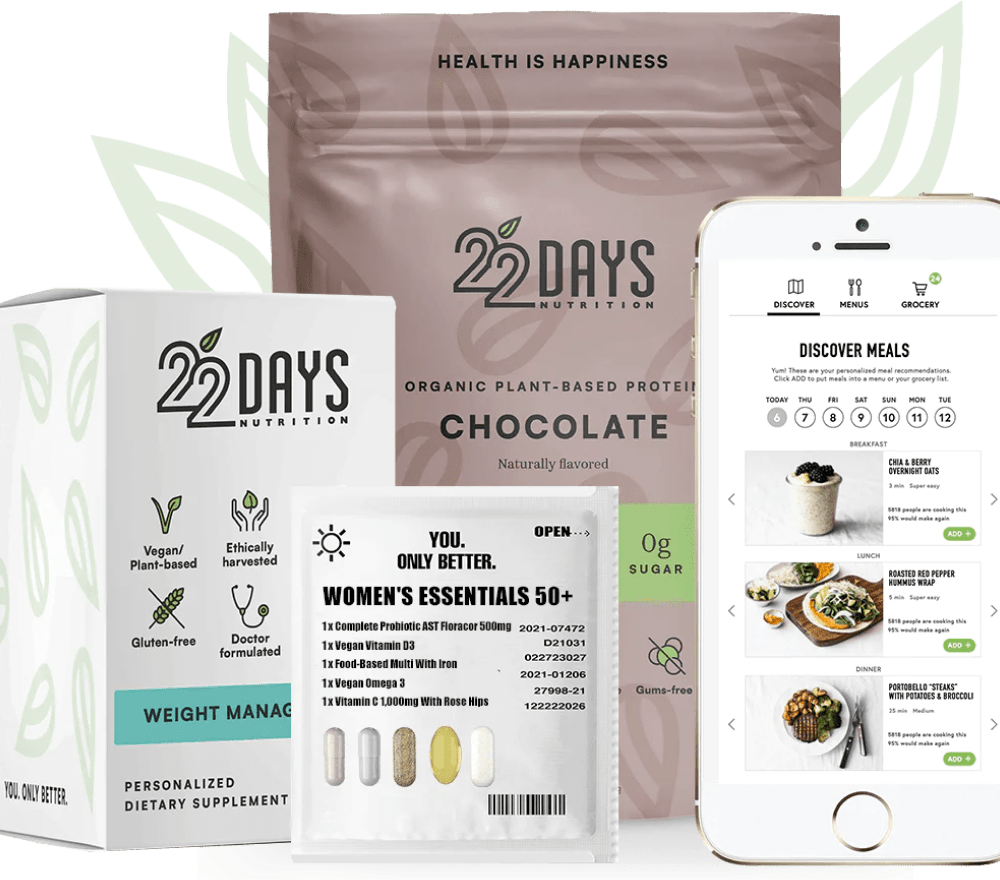Whey Protein Alternatives For Lactose Intolerant + Vegans
Whey And Lactose Intolerance Alternatives
Cows milk is the most common food allergen in America affecting up to 50 million people. In most cases, this allergy is specifically triggered by lactose, which is the sugar found in dairy products. Even small amounts of these sugars can be irritating to the gastrointestinal tract of those affected by this ailment, which is why it is so important and easy to choose a plant-based protein over an animal protein like whey. On average about 60% of Americans do not produce lactase, which is the enzyme necessary to successfully digest lactose, and whether you find yourself to be a part of this statistic or not, plant-based proteins like pea can still give you all that you would need from a protein supplement with a greatly reduced risk of stomach upset and bloat.
Whey Protein Alternatives
Whey protein is highly sought after, especially in the bodybuilding world, because it contains all nine essential amino acids (histidine, threonine, tryptophan, isoleucine, leucine, lysine, methionine+cystine, phenylalanine+tyrosine, and valine) in high amounts. Many plant-based proteins easily hit these marks, especially when concentrated in the form of protein powders. These levels can be further amplified when blended with other protein sources such as pumpkin seeds, flax seeds, sachia inchi seeds, brown rice, and soy. You can also find comfort in being able to review the amino acid chart on protein powders like 22 Days Nutrition and see that all requirements are being met. Keep in mind when making a smoothy, adding a tablespoon or two of your favorite nut butter, or some additional rolled oats will significantly increase the amount of protein you are ingesting. Some claims have been made that our bodies can only absorb between 25-35 grams of protein per serving anyway, so no need to stress about exceeding those numbers- especially if you aren't trying to look like the hulk!
Substitutes For Whey Protein
The most popular plant proteins on the market are currently hemp, brown rice, soy, and our personal favorite, pea. All of these protein sources are known to be complete and further amplified when concentrated in protein powder form. The inclusion of all of these foods in smoothie form, or whole food form, will ensure protein requirements are being met daily. They should especially be focused on when replacing whey protein, or any (or all) other animal products in your diet.
Pea Protein
Pea protein is a naturally occurring protein found in peas, with high digestibility, a large range of amino acids, and an absence of common allergens. Pea protein has about three times the arginine content of whey, high amounts of iron, and amino acids that are known for muscle recovery and improved performance. 22 Days Protein is commonly used by those seeking to avoid whey because of it's simple, clean, and easy to digest ingredients. In conjunction with pea protein, 22 Days also uses sachia inchi seeds, and milled flax to lift amino acid levels even higher.
How to Make a Plant Protein a Complete Protein
All plants contain protein, but each plant, and all foods for that matter, will contain varying amounts of the nine essential amino acids. Amino acid levels found in plants can be found in abundance when consuming meals with a variety of ingredients. Beans and rice supply ample protein, as well as quinoa and lentils, peanut butter on whole-wheat bread, and tempe with whole wheat, or gluten-free noodles. It is very rare for a person to just eat beans for dinner, or plain noodles, so fear not!
For delicious protein powder flavors and recipes please visit our blog.
Whey protein alternatives have become increasingly more common in modern times, and with the health benefits of switching to plant-based alternatives, we find this move to be a no brainer! Enjoy the massive selection of vegetables, beans, legumes, and grains available to you knowing there is great strength to be gained!





